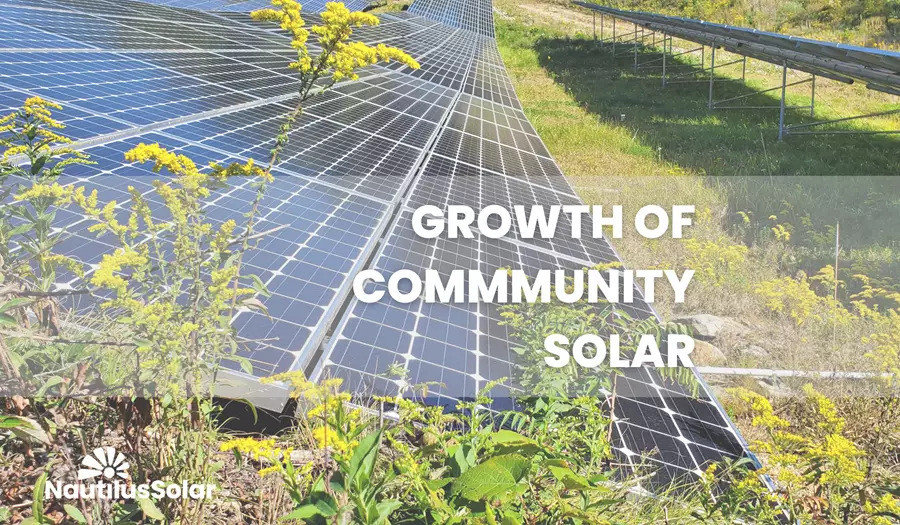Community solar is one of the fastest growing sectors of the clean energy industry, providing locally produced, affordable electricity through clean energy sources without requiring any solar panels to be installed onsite. Often called “shared solar,” community solar is a local solar “farm” where customers receive a share of the total power produced. Typically, community solar farms are owned and operated by developers such as Nautilus Solar Energy. The farm's solar panels generate energy that is sent through the electric grid and delivered to customer homes by the local utility company. Savings from the project shows up on the customer’s utility bill as solar energy credits, which can reduce electric bills by a guaranteed 5% a year (10-15% in most states).
“Our mission is to create a clean, sustainable future by offering an equitable and affordable renewable energy choice to all,” says Eric LaMora, Executive Director of Community Solar at Nautilus. “Community solar is a win/win for residents. It allows customers to reduce their carbon footprint while saving money on their electric bills. Plus, their actions have an impact on the entire community by contributing to increased sustainability, cleaner healthier air, and reduced pollutants.”
Betty, a former Department of Defense employee, chose to subscribe to community solar because it’s clean, less expensive, and dependable. “I chose community solar because I wanted to change things in our lives to go greener. It’s cleaner, it’s available, and I would like a cheaper bill than what I’ve been getting,” she added.
The future of community solar is dependent upon more state government legislation for community solar policy and programs and consumer education about its benefits. Community solar is currently available in twenty states and the District of Columbia with more state programs on the way. The good news is that more states are on their way to enacting other clean energy policies in part due to the collaborative work of solar advocate groups and the solar incentives offered through the Inflation Reduction Act.
Additionally, consumer education on the environmental and economic benefits of community solar has been critical to the growth of the renewable energy market. Several industry organizations are doing wonderful work to raise awareness and educate consumers on the benefits of renewable energy, including Vote Solar, and Coalition for Community Solar Access, among others. Nautilus works alongside these organizations to help support their work to educate consumers and enact community solar policy.
The Nautilus team is currently inviting customers to enroll to a community solar projects with no upfront cost, long-term commitment, or cancellation fees. Spots are limited, so residents who are interested in subscribing to one of the community solar farms should sign up here. Businesses may enroll by emailing sales@nautilussolar.com or calling 207-518-8466.
Want to learn more about community solar?
Learn more about community solar from our comprehensive guide here.
Want to know more about the benefits? Click here.
Like to see how community solar works? Read this article next.
Are you ready for affordable electricity?
By joining a Community Solar project, you've chosen an easy way to support renewable energy, and create local power projects that increase regional grid resiliency and reduce emissions. And you don't have to maintain or optimize your own residential panels yourself or pay someone to do it for you. Getting started is simple and you will save money on your electric bills with no upfront cost. All that is needed is five minutes and a utility account.


.png)

.png)
